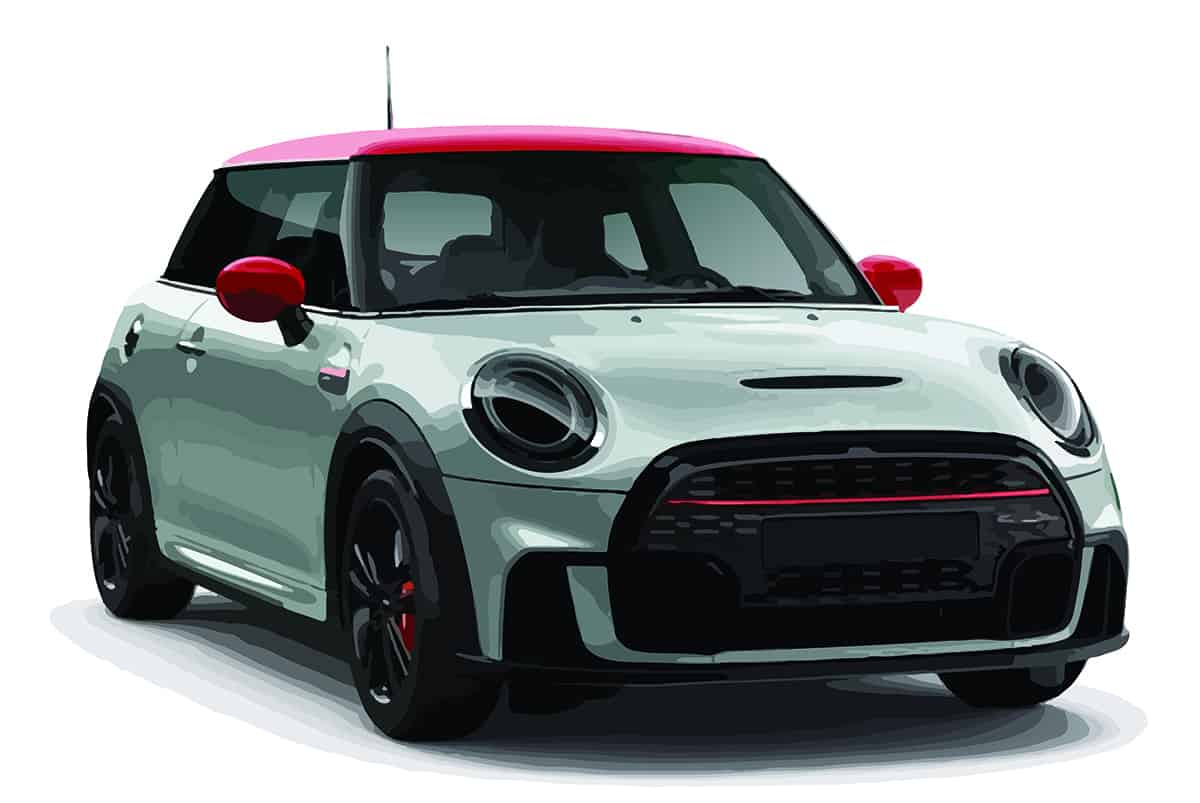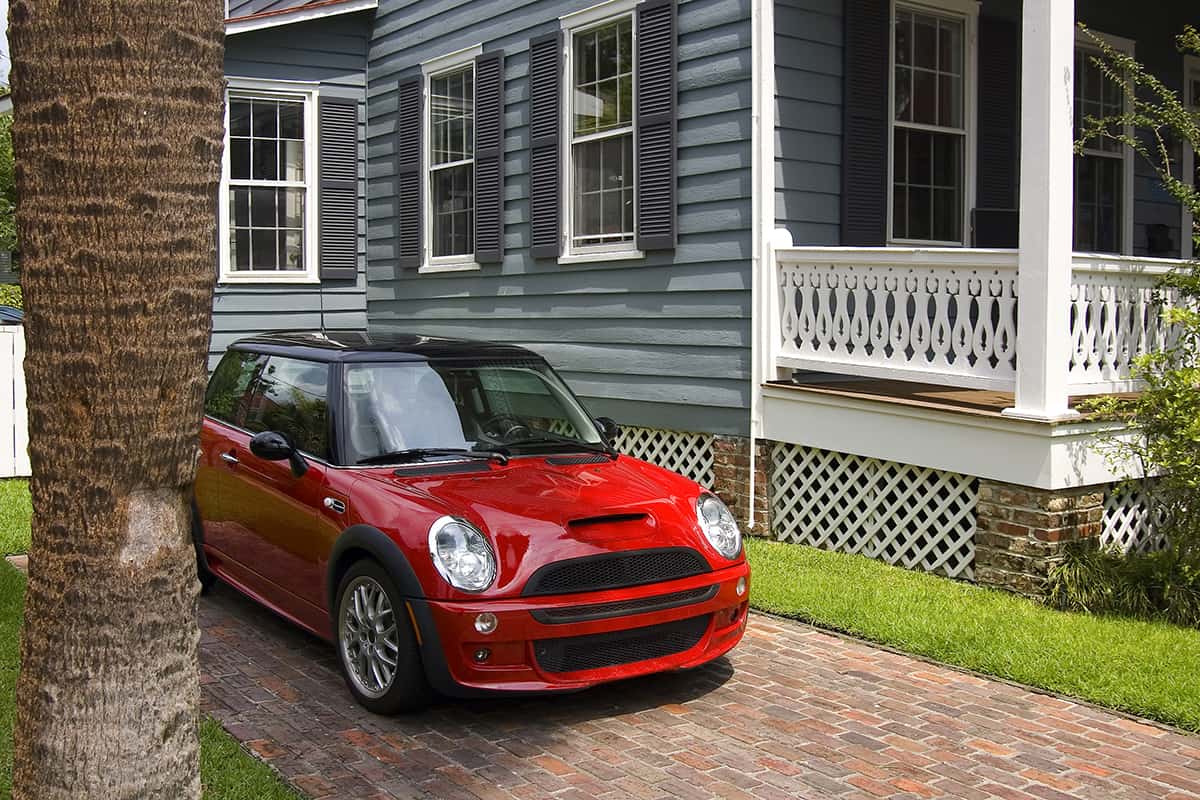Hey there, fellow Mini Cooper fan! So, you’ve been wondering how many miles you can squeeze out of that lovely little car of yours. These compact cuties have been winning hearts since their debut, but just how far can they go?
While there’s no one-size-fits-all answer, with proper care and maintenance, a Mini Cooper can last anywhere between 150,000 to 250,000 miles.
Today, we’re going to take a brief look at this classic mini-hatchback, discuss the various factors that affect a Mini Cooper’s longevity, and see a few tips from owners on how to care for their compact vehicles.
The Mini Cooper: A Brief History

The history of the Mini Cooper is a captivating tale that began in the late 1950s. During this period, the British Motor Corporation (BMC) sought to develop a fuel-efficient, compact car in response to the Suez Crisis and soaring fuel prices. Enter Sir Alec Issigonis, a visionary automotive designer who revolutionized the industry by creating the original Mini.
Launched in 1959, the classic Mini was an instant success, thanks to its innovative design and space-saving transverse engine layout. By the 1960s, the Mini had become an icon of British culture and gained popularity worldwide.
In 1961, racing legend John Cooper collaborated with Issigonis to develop a high-performance version of the Mini, known as the Mini Cooper. This model swiftly gained recognition in the world of motorsports, winning several Monte Carlo Rally titles in the 1960s.
Fast forward to 2007, when BMW acquired the rights to the Mini brand and introduced a modern interpretation of the classic car. This new generation of Mini Coopers, infused with BMW’s engineering expertise, successfully preserved the car’s charm while adding contemporary features and technology.
Today, the Mini Cooper continues to captivate drivers with its unique blend of style, performance, and British heritage. It has evolved to accommodate modern preferences, including the introduction of electric and hybrid models while staying true to its roots as a beloved icon in the automotive world.
How Many Miles Does a Mini Cooper Last?
On average, with proper care and adherence to recommended maintenance schedules, a Mini Cooper can last between 150,000 to 250,000 miles. It is important to note, however, that individual experiences may vary.
In comparison to other compact cars, the Mini Cooper demonstrates a respectable lifespan, provided it is well-maintained. As a result, these iconic British automobiles continue to be a popular choice for drivers seeking a stylish, fun-to-drive, and reliable vehicle that stands the test of time.
Factors that Affect the Mini Cooper’s Longevity
Several factors contribute to the longevity of a Mini Cooper, and understanding these variables can help owners optimize the lifespan of their vehicle. The primary factors influencing Mini Cooper’s longevity are manufacturing quality, maintenance, and care, and driving habits and conditions.
1. Manufacturing quality
The build quality and materials used in Mini Coopers play a crucial role in determining their durability. This includes aspects such as engine performance, suspension systems, and braking components.
The BMW Mini Cooper, for instance, benefits from the German automaker’s engineering expertise, ensuring a robust and reliable design.
2. Maintenance and care
Regular maintenance is paramount to extending the life of a Mini Cooper. By adhering to the manufacturer’s recommended maintenance schedules, addressing issues promptly, and using quality parts and fluids, owners can significantly improve their vehicle’s longevity.
Proper care involves regular oil changes, timely belt replacements, and inspections of critical components such as brakes and suspension.
3. Driving habits and conditions
The way a Mini Cooper is driven and the conditions it is exposed to also have a substantial impact on its lifespan.
Aggressive driving, characterized by rapid acceleration, hard braking, and sharp cornering, can accelerate wear and tear on the vehicle. Moreover, driving primarily in urban environments with frequent stop-and-go traffic can strain the engine and transmission.
Finally, weather and road conditions, such as extreme temperatures, salt exposure, and poor road surfaces, can also affect the overall durability of a Mini Cooper.
Comparing Mini Cooper Longevity to Other Popular Vehicles

When comparing the longevity of a Mini Cooper to other popular vehicles, it is essential to consider various categories, such as other compact cars, luxury vehicles, and electric vehicles. Each category presents its unique characteristics that can influence vehicle durability and lifespan.
1. Other compact cars
The Mini Cooper competes with other compact cars like the Honda Civic, Toyota Corolla, and Volkswagen Golf. Generally, Mini Coopers have a respectable lifespan, with well-maintained examples lasting between 150,000 to 200,000 miles.
However, some rivals, particularly Japanese models, are renowned for their reliability and might surpass the Mini Cooper in terms of longevity. Ultimately, regular maintenance and proper care play a significant role in determining the lifespan of any compact car, including the Mini Cooper.
2. Luxury vehicles
Luxury vehicles, such as BMW, Mercedes-Benz, and Audi models, often feature advanced engineering, high-quality materials, and cutting-edge technology.
While the Mini Cooper, especially the BMW-engineered versions, shares some of these attributes, luxury vehicles typically require more frequent and expensive maintenance. Consequently, the Mini Cooper offers a balance between the refinement of luxury vehicles and the practicality and affordability of compact cars, making it an appealing choice for many drivers.
3. Electric vehicles
The Mini Cooper also faces competition from electric vehicles (EVs), which are gaining popularity due to their eco-friendly nature and lower operating costs. Mini Cooper Electric, for instance, is designed to capitalize on these trends.
When comparing the longevity of electric and gasoline-powered Mini Coopers, EVs have the advantage of fewer moving parts and less overall maintenance. However, the lifespan of their battery packs can affect their overall longevity.
As battery technology advances, it is anticipated that electric Mini Coopers will demonstrate enhanced durability and lifespan compared to their gasoline counterparts.
Mini Cooper Owner Experiences
Mini Cooper owner experiences provide valuable insights into the real-life performance, durability, and challenges associated with these vehicles. By examining high-mileage Mini Coopers, common issues, and advice from long-time enthusiasts, potential buyers can make an informed decision about Mini Cooper ownership.
1. Real-life stories of high-mileage Mini Coopers
Many Mini Cooper owners have reported achieving impressive mileages, sometimes surpassing 200,000 miles, with proper care and maintenance. These stories often highlight the importance of following the manufacturer’s recommended service intervals, using quality parts, and promptly addressing any issues that arise. Such accounts serve as a testament to the Mini Cooper’s durability when appropriately maintained.
2. Common issues experienced by owners
Despite their charm and appeal, Mini Coopers are not immune to problems. Some common issues reported by owners include power steering failures, water pump leaks, and clutch wear. While these problems can be addressed by regular maintenance and timely repairs, it is essential for potential buyers to be aware of these concerns when considering a Mini Cooper purchase.
3. Tips for owning a Mini Cooper long-term
Experienced Mini Cooper owners often share valuable advice for maximizing the lifespan and enjoyment of these vehicles. Recommendations include adhering to service schedules, using high-quality fluids and parts, and avoiding aggressive driving habits. Additionally, joining Mini Cooper clubs or online forums can provide a wealth of knowledge and support from fellow enthusiasts.
Is the Mini Cooper Right for You?
To decide if a Mini Cooper is suitable for you, it is essential to evaluate your driving preferences, lifestyle, and requirements. Mini Coopers are known for their compact size, unique style, and spirited driving experience. If you prioritize fuel efficiency, easy maneuverability in urban settings, and a fun driving experience, a Mini Cooper may be a fitting choice.
The total cost of ownership is another crucial factor when determining if a Mini Cooper is right for you. This includes not only the initial purchase price but also ongoing expenses such as fuel, insurance, maintenance, and repairs. While Mini Coopers are generally more affordable than luxury vehicles, they may have higher maintenance costs than some competitors in the compact car segment.






